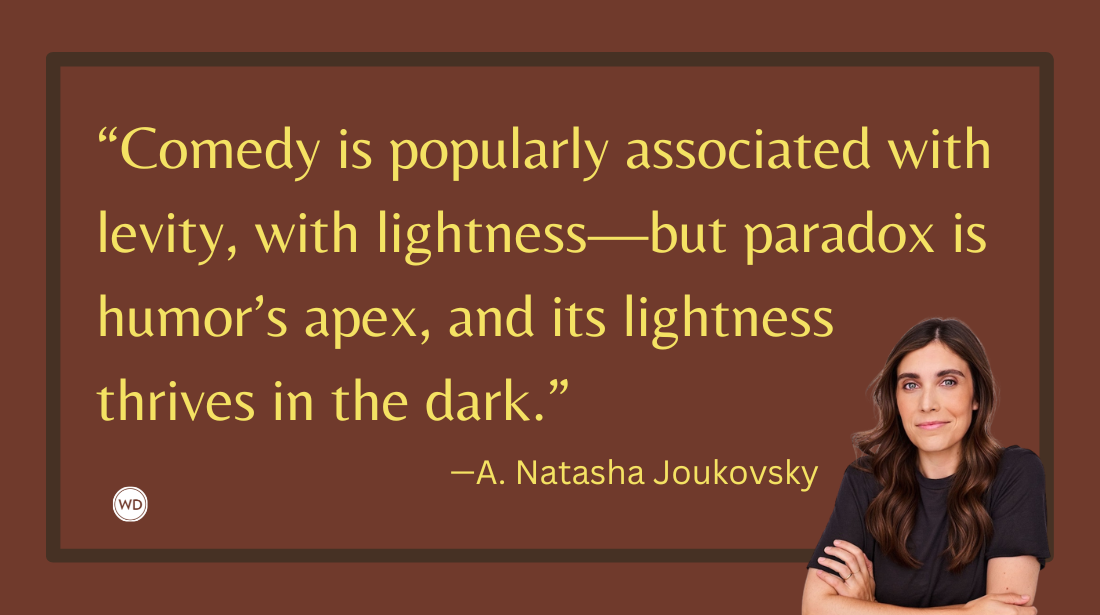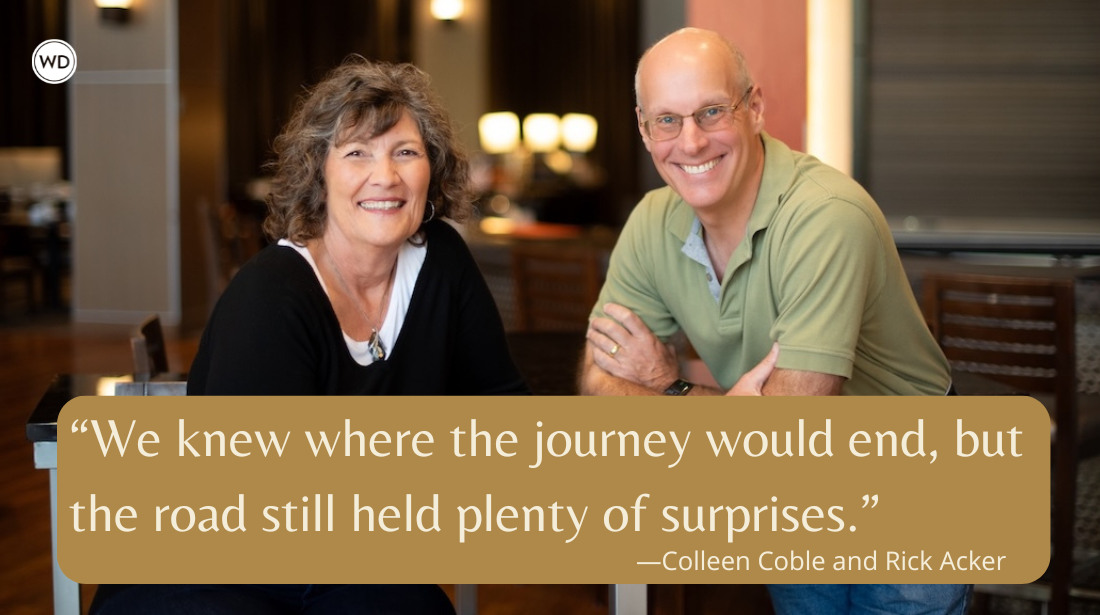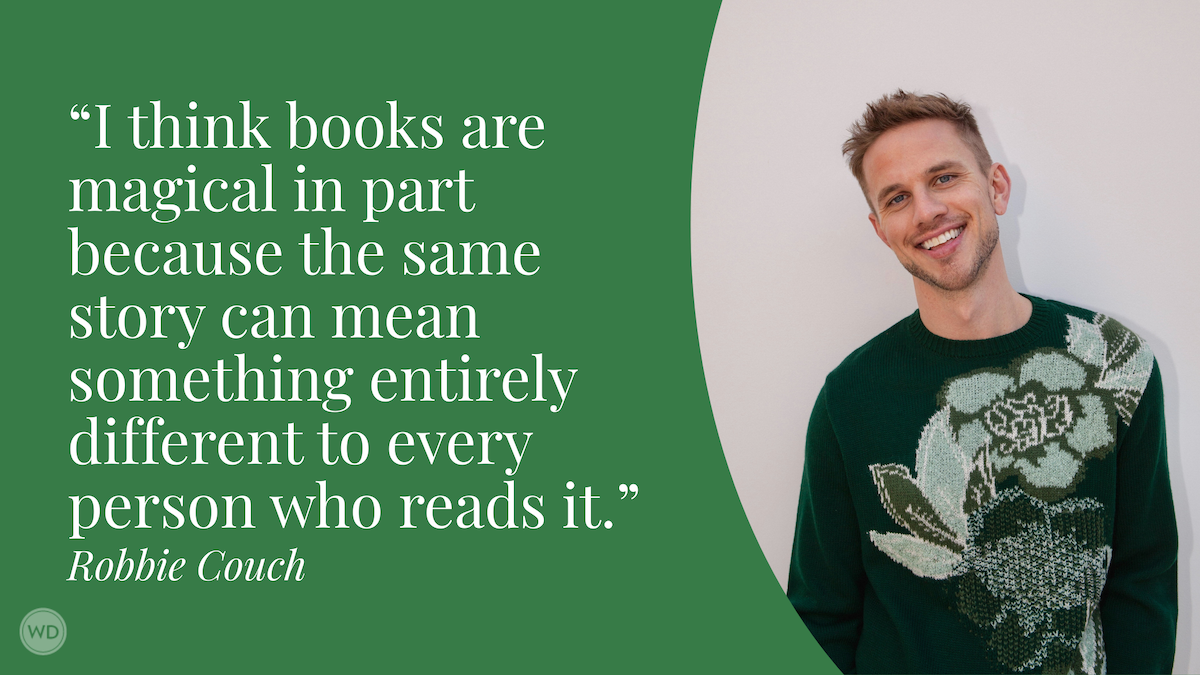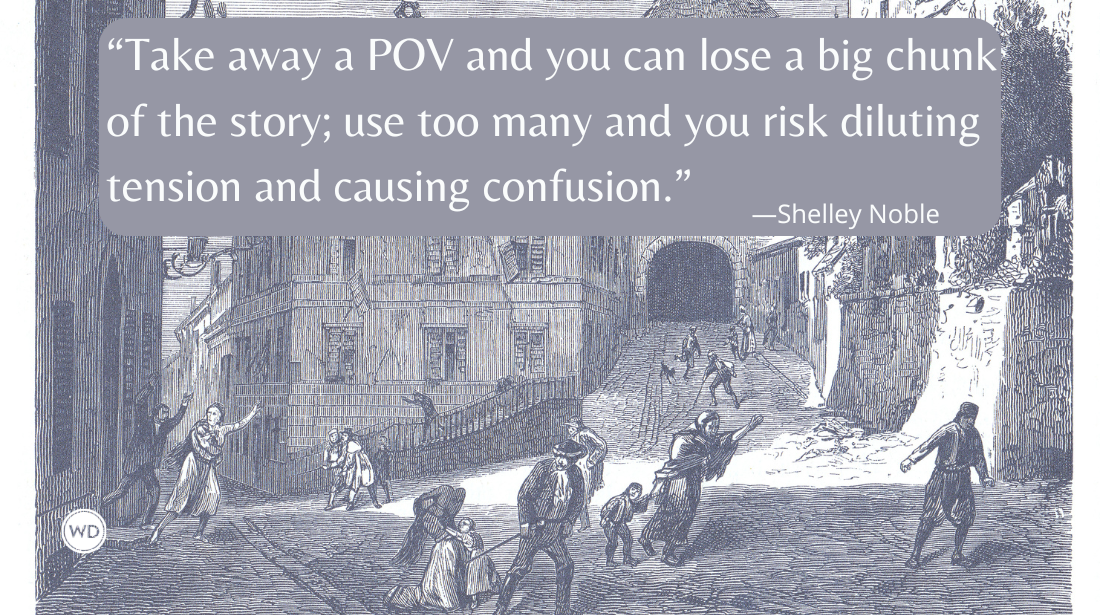Writing Through Grief in a Rom-Com
Author and journalist Emma Grey shares her experience writing through the grief of losing her husband and how it’s impacted her and readers around the world.
“Write what you know,” we are told. But when what you know is that your husband died, shockingly, prematurely and without even a beat to say goodbye, where do you begin?
At 42, I found myself suddenly widowed, tumbling into soul-crushing grief and sole parenting. The heart attack that ended Jeff’s life ripped the rug out from underneath our universe. At first, I could barely breathe from the agony of losing him. There were times when, if I screamed, grief would swallow up the noise.
Everyone tells you to take things step-by-step. For me, it was word-by-word. Right from the start, I knew there would be no way through this wretchedness but via the page. Words fell out of my heart, first into social media posts on Facebook as I tried to articulate to my friends the horror of our loss. Then, into longer pieces in newspapers and magazines, until that word limit felt stifling, too.
I had more to say about loss than could be contained in an 800-word essay. With grief as my new, unwanted muse, I knew I would write a book, but what kind? Self-help? Memoir? The former felt unnecessary with such brilliant guides already in the market. The latter too exposing for our very private family.
In fiction, my grief found oxygen. The made-up world became a playground for my protagonist to express her darkest thoughts. My darkest thoughts, let’s be honest. And while she isn’t ‘me,’ her grief is entirely personal. There’s often a fine line between fiction and memoir.
In writing a novel, I rehearsed the concept of a delicious, Plan B future—including the second-chance love story I hadn’t dared approach too closely in the real world. It was like walking into a different house and trying on someone else’s life—browsing a potential future existence, playing out the missteps in safety.
And with my decades-long background in swooning at the likes of Gilbert Blythe and Mr. Darcy, it was inevitable that my ‘grief novel’ would morph into a romantic comedy. I wanted to take the reader deep into the stark reality and unsanitized ugliness of loss, but wanted this novel to build to a crescendo of hope. It was all about the light and shade. My aim was for readers to set the book down after the final page, and feel as though they’d just emerged from a Richard Curtis rom-com—elated, with mascara running down their cheeks, having been through the emotional wringer in the very best of ways.
The Last Love Note has been billed by several reviewers as, "so much more than a rom com," but in some ways it’s also more than a book. Since Penguin Random House released it early in 2023 in Australia, and now with Zibby Books bringing it to the US, it has opened a channel into which conversations about grief are pouring.
Check out Emma Grey's The Last Love Note here:
(WD uses affiliate links)
Not a morning goes by that I don’t pick up the phone beside my bed, still bleary eyed and half-asleep, and read another private message from a young widow on the other side of the world. Or from the adult who lost a parent when they were young. Or a person whose partner has a terminal illness. I’ve spoken about grief on radio programs and podcasts, in workshops, at writers festivals and even at a conference packed with hundreds of young widows, each desperate for someone to articulate something for which there often feels insufficient language—even when words are your bread and butter.
This is the book I needed when Jeff died. Not a ‘how to grieve’ handbook. A novel that tells it exactly like it is, and takes us so deeply into the visceral reality of loss that anyone who’s experienced it will recognize their own heart, bleeding across the pages.
We don’t talk about grief enough. When you lose someone unexpectedly, you’re woefully unprepared. Loss is a minefield of taboos, whether it’s the quiet sense of desperation and temptation not to go on, or the nervous hope of moving forward—trusting your heart with someone new.
Having blasted the story out into both hemispheres of the world, I moved into a new and unexpected psychological phase, and a challenging chapter in my writing career: ‘survivor guilt.’ The more strongly the novel performed, and the higher its accolades, the more aware I became that my suddenly-galloping career was a direct result of my husband having died. This book wouldn’t exist were he still alive. I wouldn’t have had the experience to have written something so deeply personal on this universal topic.
Of course, it has been readers who have rescued me. The woman in Michigan who wrote to tell me how much the story meant to her, because her dad died when she was 12. The sister of a new widow in Perth, Australia, who said the book helped her navigate her sibling’s loss. The distressed mom whose husband died only a few months prior, who said picking up the book had helped her feel less ‘othered’ and alone.
Writing The Last Love Note helped me exhale devastation and inhale hope. It allowed me to take the love of my life and immortalize the strength of it between the covers. It helped open a conversation that I hope will leave a legacy of enhanced communication as we walk each other down one of the most thorny and terrifying human pathways.
Most of all though, it let me leave an extended, humorous, hopeful, heart-wrenching and ultimately heart-warming ‘last love note’ for my incredible husband, who once asked me why I write. He never imagined his own death, and the way it razed our existence, would become the catalyst. Or that this book would be the vehicle through which I would rebuild.
Emma Grey is an acclaimed Australian journalist and young adult fiction writer. Her writing has appeared in The Age, Canberra Times, and Herald Sun. The Last Love Note is her debut adult novel. She lives in Canberra, Australia, with her family.









